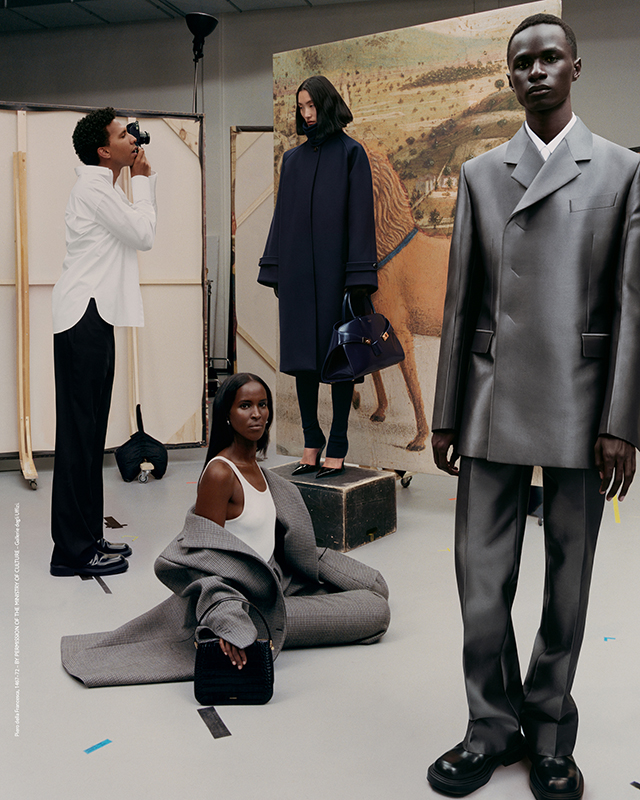
Members of the new Ferragamo extended community are imagined as timeless protagonists of masterpiece paintings from the Italian Renaissance, while a parallel series of images provide insight into the process: Renaissance a symbol of rebirth, an in the making collective effort.
The story of Ferragamo is not simply, as the founder put it, “the story of the small, barefoot, unlettered boy who became the shoemaker to the stars”. It is also the story of constant rebirth and evolution. Certainly Salvatore Ferragamo, born in the village of Bonito, the 11th child of 14, who had been making beautiful footwear since the age of 12, was reborn in the States as a young Italian artisan who understood the desires of Hollywood. That was Ferragamo’s first Renaissance.
This transformation was achieved through embracing Italian heritage with daring talent. The interiors of his store at 6683 Hollywood Boulevard were pure Italian Renaissance: walls featuring batik resembling 14th-century tapestries, hand-carved sofas, and luxurious draperies complementing classical columns. Though from the Avellino region near Naples, as an Italian, Salvatore was under the spell of Florence, the “Jewel of the Renaissance”, and imbued with the spirit of that place and time; he understood its power and resonance. So, when a few years later he decided to return to Italy, there was only one place that would do: Florence. A new Ferragamo Renaissance had begun.
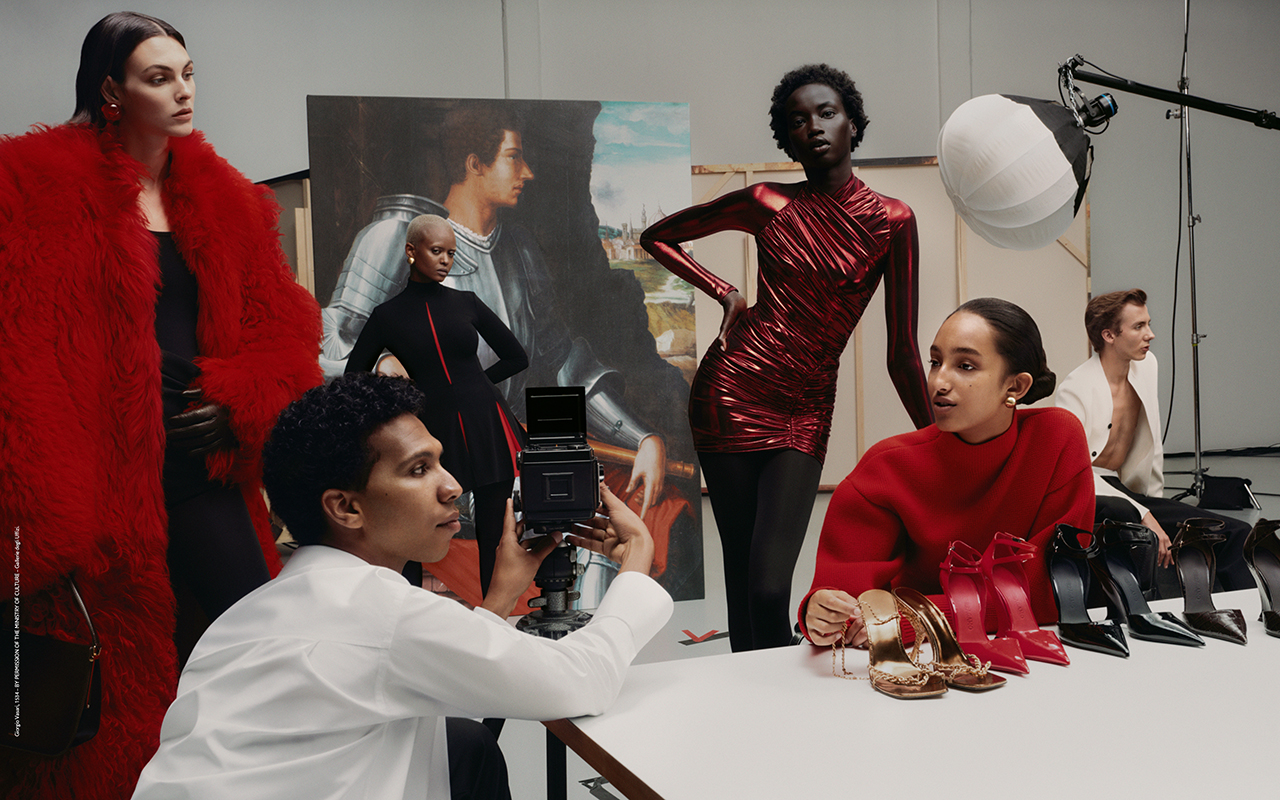
The Italian Renaissance was a time of intense creativity and new ideas. It celebrated innovation and craftsmanship, and married art and artisan excellence. All this was in evidence at Palazzo Spini Feroni, the home Salvatore gave to Ferragamo in Florence in 1927. Dating back to the 13th- century, the Palazzo, which is still Ferragamo’s headquarters, seemed emblematic of the Florentine bottega, the workshop or studio of the master artists and craftsmen where dialogue and the exchange of ideas and knowledge allowed Renaissance thinkers, intellectuals and artists to develop local philosophy and skills into a global phenomenon.
A creative community fed the founder’s imagination and broadcasted his Florence-infused collections. This included not only Salvatore’s fellow craftsmen, but also his extraordinary clientele: the likes of Audrey Hepburn, Greta Garbo, Sophia Loren, Lauren Bacall, Marilyn Monroe and Eva Perón (years later Madonna would wear Ferragamo when she played Perón in Evita).
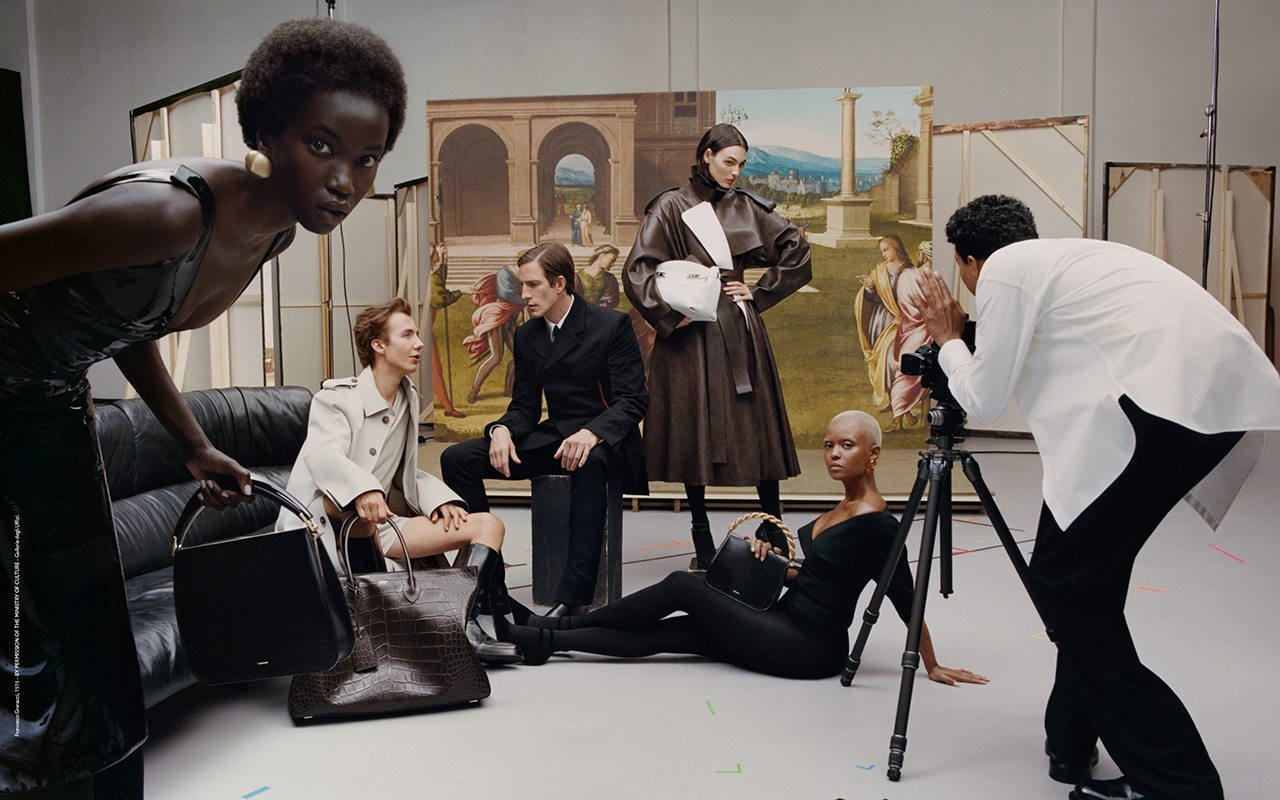
Central to the Florentine experience that drove Ferragamo’s creativity, the symbol of the beating heart of the city’s continual celebration of the Renaissance, was the Uffizi. Started by Giorgio Vasari as offices – uffizi – for Cosimo I de’ Medici, Grand Duke of Tuscany, in 1569, it was one of the earliest modern museums, opening its gallery to the public in 1769 and becoming a museum just under a century later. Throughout the history of Florence, the Uffizi has been there, a guiding light, reminding us the importance of eternal ideas, art, beauty and creativity.
Today Ferragamo chooses to partner with the Uffizi to accompany Creative Director Maximilian Davis vision for the brand, using some of the most famous artworks of the 15th and 16th centuries to act as settings for his work. By placing muses, friends and members of his diverse creative community in sharp tailoring and exquisite suiting, with richly textured fabrics, bold materials and colours, the Hug bag and archive inspired gold sandals in the context of works by Bellini, Veronese and Botticelli, Davis has created a dialogue between past and present, values of tradition and of progress, past eras and future generations, both the spirit of the Renaissance and the world of 21st-century luxury are thrown into different relief by juxtaposition.
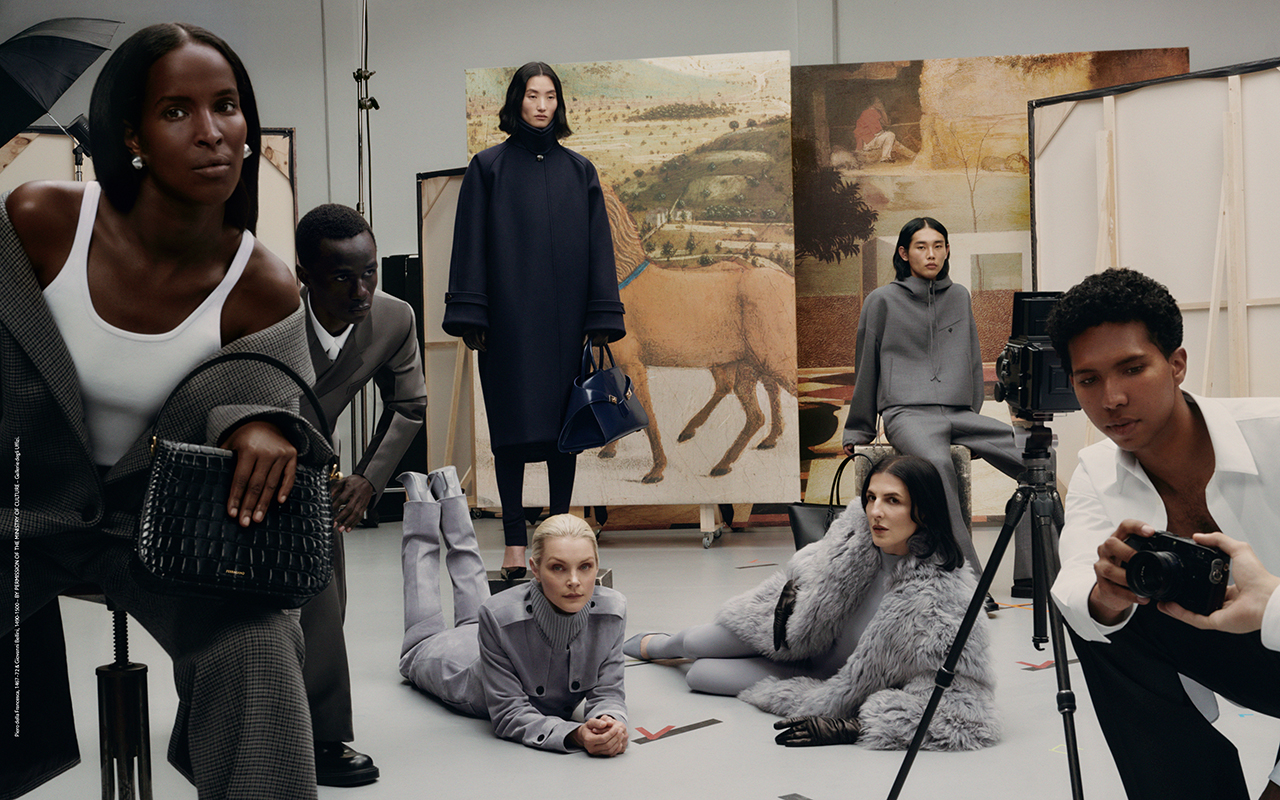
Maximilian Davis says: “The Renaissance is hardwired into Florence, and Florence is hardwired into Ferragamo. At this time of a new beginning at the house, it made perfect sense to reclaim the cradle of the Renaissance as our spiritual home, and to harness the deep, artistic spirit of this city to showcase the new collection”.
Just as founder Salvatore collaborated with an artistic community, Davis invited a group of creatives to feature in the pictures including the campaign photographer Tyler Mitchell. The New Renaissance campaign narrates creativity in the making, with a cast of characters portraying models, musicians and creators that inhabit the artwork-based mise en scene, animating them in a contemporary way.
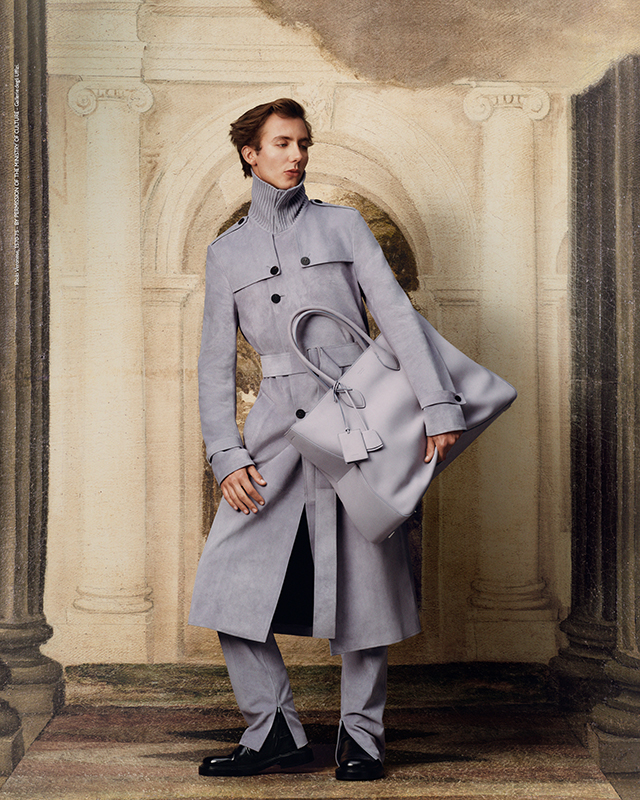
Maximilian Davis is constructing Ferragamo’s future through the skilled hands of its artisans, the study and evolution of its heritage, the harnessing of new creative talents, and the establishment of his own community. Welcome to Ferragamo’s New Renaissance.
Campaign Concept and Creative Direction: Ferdinando Verderi Photography: Tyler Mitchell
The Cast: Vittoria Ceretti – Model, Anok Yai – Model, Lina Zhang – Model, Jessica Stam – Model, Mona Tougaard – Model, Paul Hameline – Model, Iván de Pineda – Model, Malick Bodian – Model and Photographer, Taemin Park – Model, Zainab Jama – Creative Consultant and Strategist, Kelela – Singer and Songwriter, Yasmina Dexter – Sound Artist and Art Director, Tyler Mitchell – Photographer and Video Director
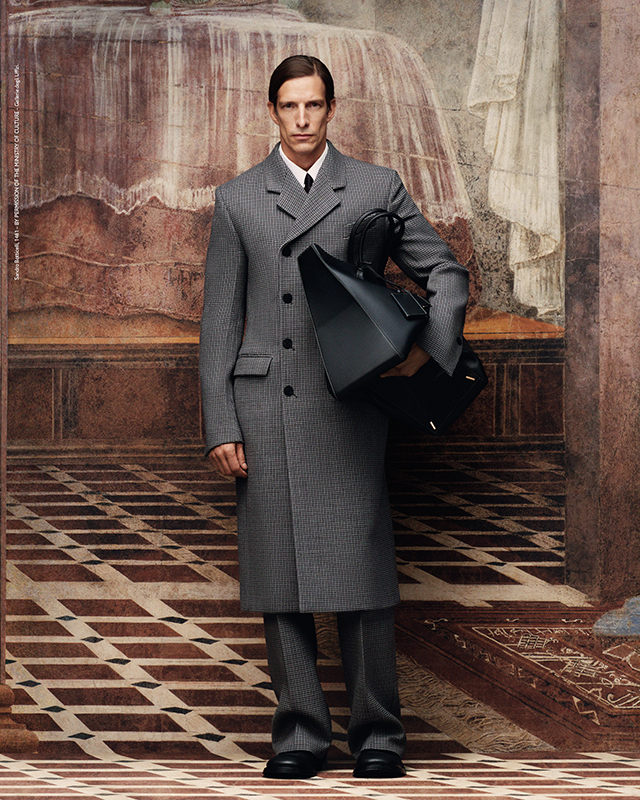
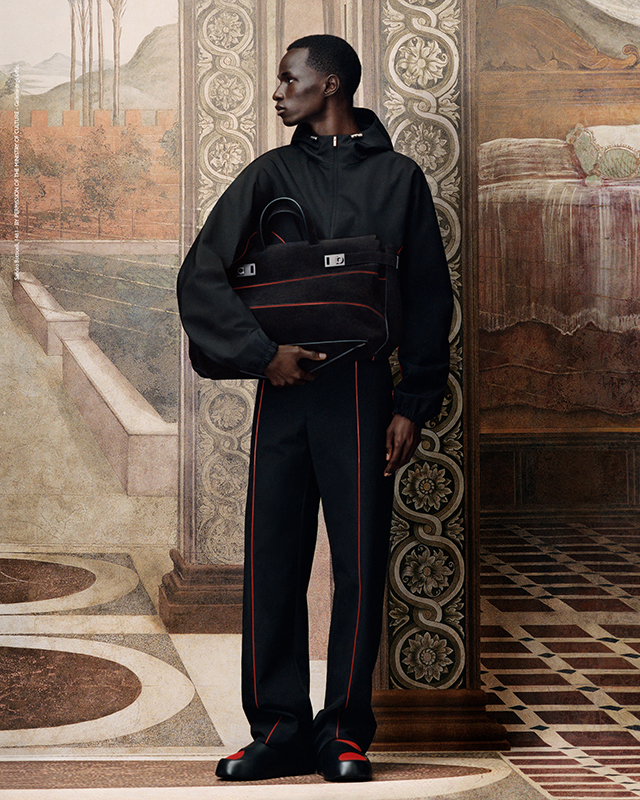
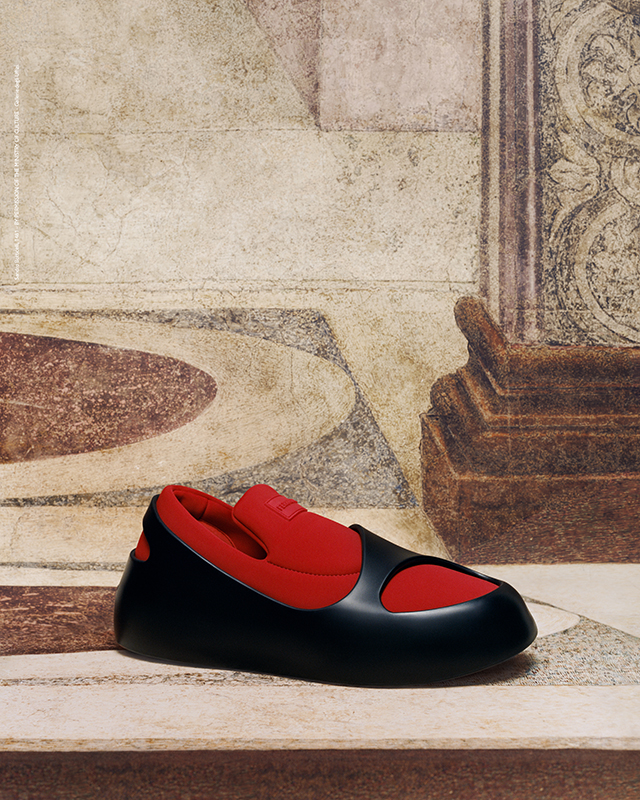
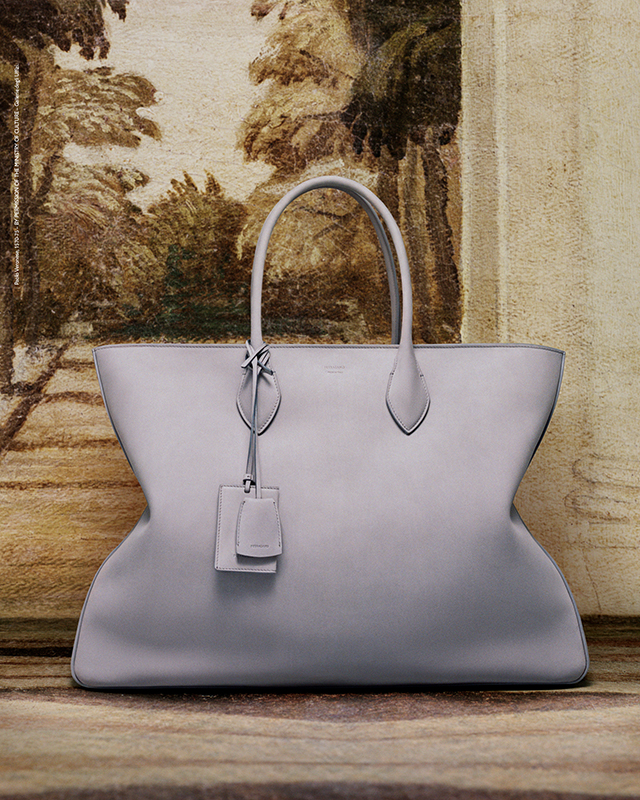
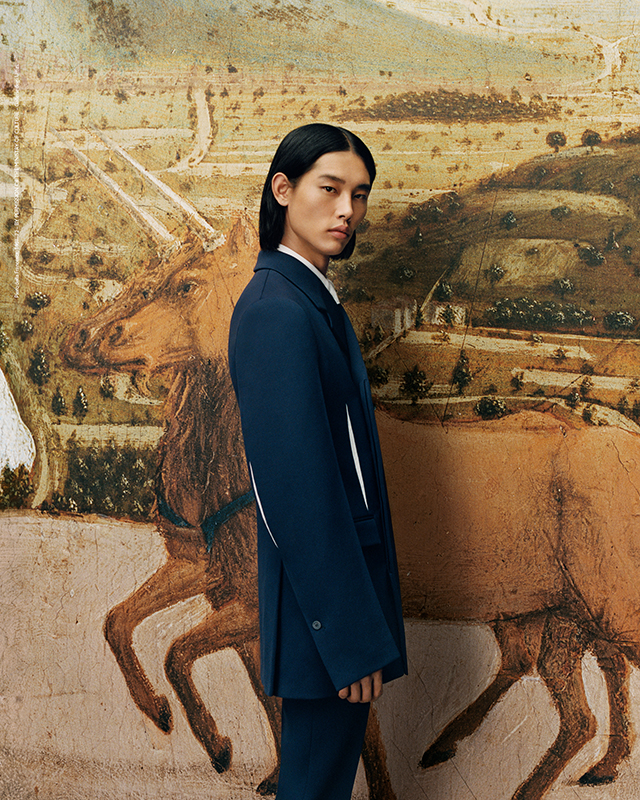
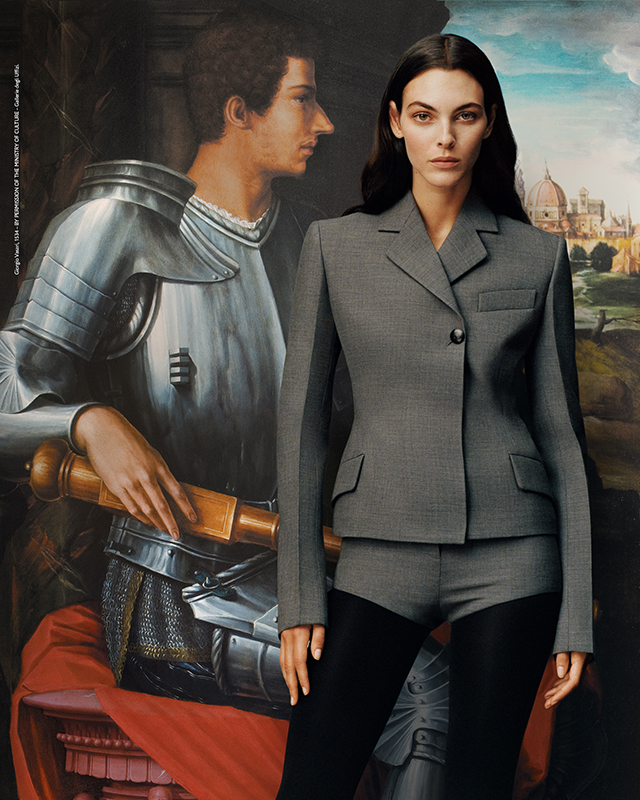
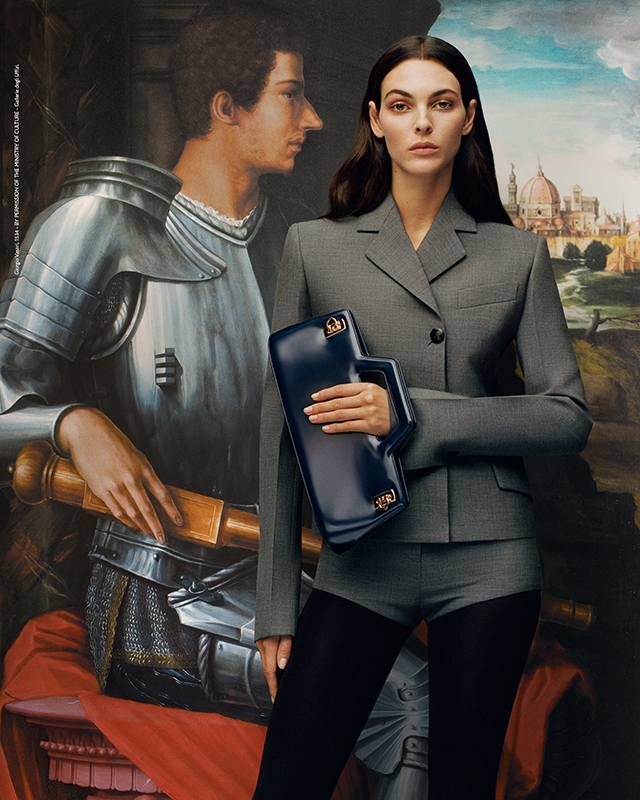
Artworks featured: Alesso Baldovinetti, Annunciation (1457), Giovanni Bellini, Holy Allegory (1490-1500), Paolo Veronese, Annunciation (1570-75), Francesco Granacci, Joseph Going to Prison (1515), Giorgio Vasari, Portrait of Alessandro de Medici (1534), Botticelli, Portrait of a Man with a Medal of Cosimo the Elder (1475), Botticelli, The Annunciation of San Martino alla Scala (1481), Piero della Francesca, Diptych of Federico da Montefeltro and Battista Sforza (1467-1472).

